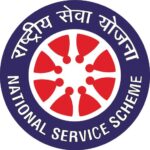
The National Service Scheme (NSS) was introduced in 1969 with the primary objective of developing the personality and character of student youth through voluntary community services. ‘Education Through Service’ is the purpose of the NSS.
The NSS symbol is based on the “Rath” wheel of the Konark Sun Temple situated in Odisha. The navy blue colour indicates the cosmos of which the NSS is a tiny part, ready to contribute its share for the welfare of mankind.
NSS volunteers generally work in villages, slums, and voluntary agencies to complete 120 hours of regular activities during an academic year. As per the fundamental principles of the National Service Scheme, a volunteer is expected to remain in constant touch with the community.
Botany Department